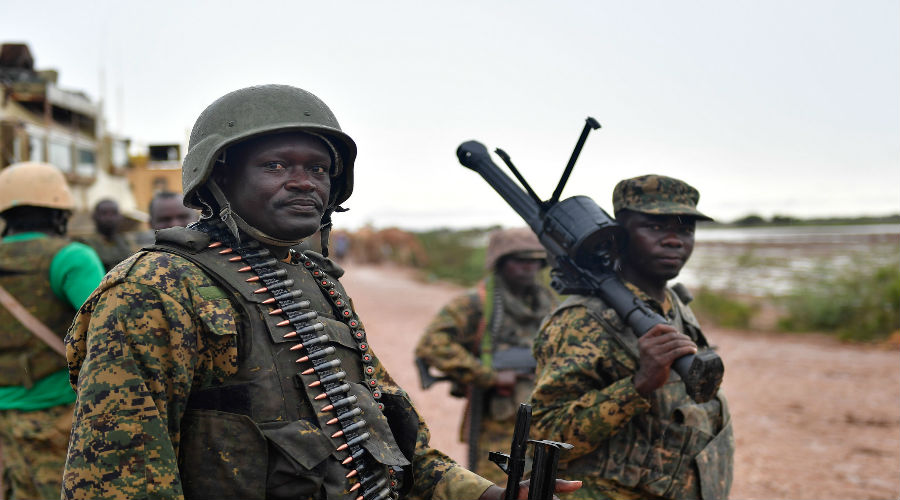Terrorist groups affiliated with Al-Qaeda in the Islamic Maghreb (AQIM) operating in the Sahel and Sahara, started to issue new threats to foreign companies operating in the region. This is the same mechanism used previously by the mother organization in 2013. The Jama’at Nusrat al-Islam wal Muslimeen (JNIM), a main branch of the organization, in a statement issued on May 9, described Western companies operating in this region as “legitimate targets” and urged for boycotting and attacking them. This is inseparable from main variables, the most important of which is the increasing regional and international interest in supporting the G5 Sahel force and ISIS’ escalating activity in this region.
Significance of Timing
What stands out in this context is that these threats come at a time when several regional and international powers involved in the war on terrorism are making efforts to revitalize the role of the G5 Sahel force, which includes troops from Mauritania, Mali, Niger, Chad and Burkina Faso, to confront terrorist organizations operating in the Sahel and Sahara. Al-Qaeda is trying to address the move by asserting its ability to carry out high-profile operations and countering the pressures it came under.
Accordingly, the targeting of the economic interests of Western powers is among the most important mechanism it used to conduct its strikes. This is especially so because these interests receive special attention from regional states that rely on foreign investments to support their national economies.
The approaching collapse of ISIS in Syria makes the Sahel and Sahara one of the regions that are likely to attract terrorists returning from the country, especially after the group of Abu Waleed Al-Sahrawi, one of the groups loyal to ISIS, announced that it is returning to the region once again at the start of this year.
No doubt, this can exacerbate security crises in the region making it an attractive hotbed for terrorists, smuggling and drug rings. This would pose no easy threats to foreign companies, especially because returnees are expected to operate individually as “lone wolves” targeting these companies or their workers.
This is inseparable from plans by al-Qaeda-affiliated groups to focus some of their terrorist operations on French and international interests and forces as well as armies of regional countries. Two separate attacks were carried out against peacekeeping troops in Mali on November 24, 2017, leaving five soldiers dead and at least 25 others from the international force and the Malian army injured. Another attack hit the French embassy and the headquarters of the Burkinabe army in Ouagadougou on March 2, 2018, and left eight people dead.
Multiple Reasons
AQIM’s keen interest in resuming the targeting of foreign companies at this specific time can be explained in light of a group of considerations of which the following stand out:
1- Soft Target. Foreign companies operating in the Sahel and Sahara represent, according to several views, a target that can be reached through movements and steps less complicated than military or vital targets that are increasingly difficult to hit due to tightening security measures. This is especially so because targeting companies does not only involve their facilities but also foreign workers on its property. One such attack occurred in In Aminas in southeast Algeria in 2013, where more than 650 people, including more than 150 foreigners of various nationalities, were taken hostage before the Algerian forces intervened to free them.
2- Source of Funding. Attacking workers of the foreign companies is a main source of funding for the activities of terrorist organizations whose members carry out operations to kidnap their foreign workers and demand ransoms to release them. This occurred in several countries of the region where such organizations are active.
Jama’at Nusrat al-Islam wal Muslimeen, affiliated with al-Qaeda in Mali, published a video showing six kidnapped foreigners alive only one day before French President Emmanuel Macron visited Mali where combating terrorism was a main topic of talks he held with the officials in Bamako.
3- Pressure Cards. Through targeting foreign companies, and French ones in particular, al-Qaeda is trying to put pressure on states that joined the Sahel force to withdraw their troops. This is an important mechanism that may cause a decline in its power and huge material and human losses as those suffered by ISIS in both Syria and Iraq. The reason is that regional and international powers show special interest in combating its activity in the region.
4- Asserting Influence. Leaders of al-Qaeda show a special concern over ISIS’ increasing activity in this region. This was reflected in a statement issued by the organization on May 12, 2018, to claim responsibility for a number of terrorist attacks, including one on a group of U.S. Special Forces soldiers on October 4, 2017 in Niger. This may lead to an expansion of ISIS’ influence and pushed it to adopt the conventional mechanisms to target foreign companies as part of efforts to assert its influence and ability to compete with other terrorist organizations.
Based on this, it can possibly be argued that recent threats made by terrorist groups affiliated with AQIM against foreign companies operating in the Sahel and Sahara region could be a prelude to a new wave of terrorist attacks focused on the interests of foreign powers showing a special interest in eliminating these threats and supporting stability in the region.


